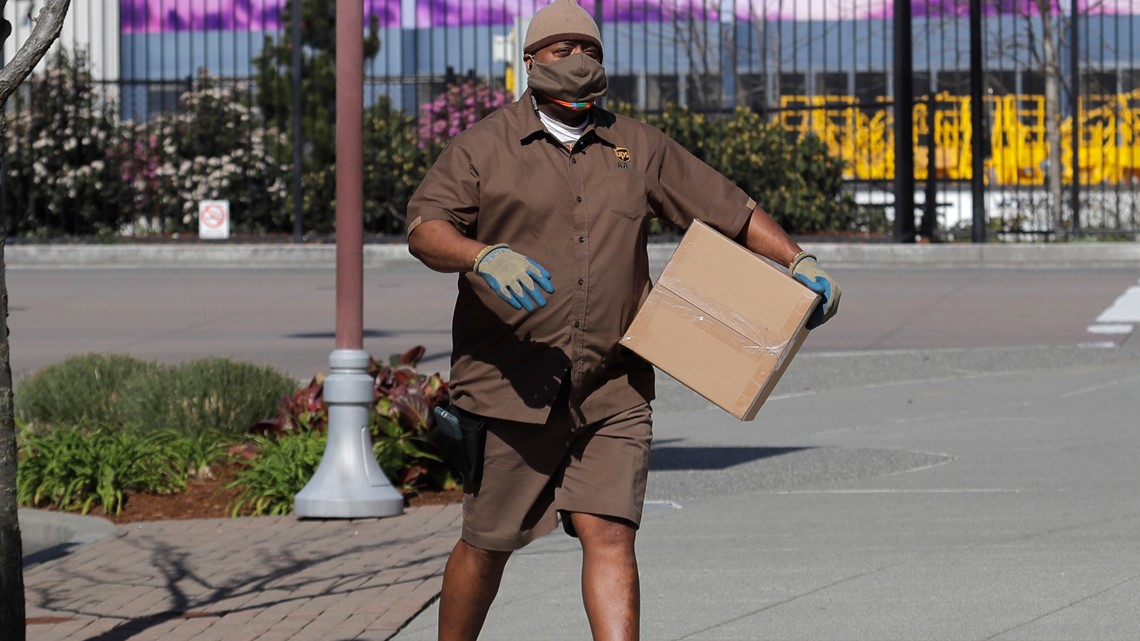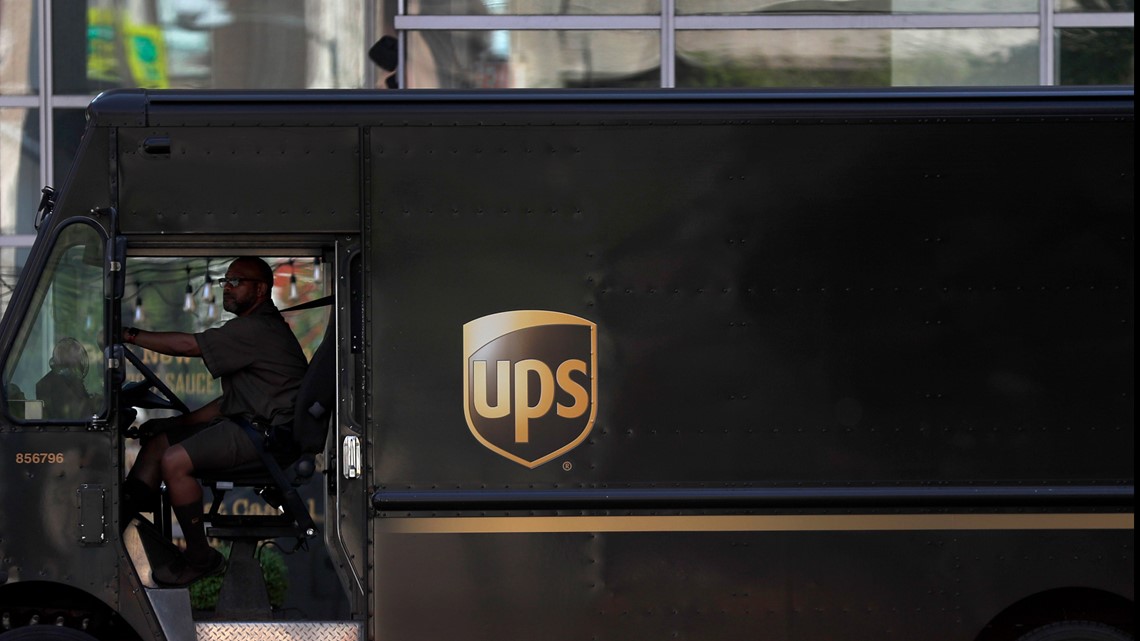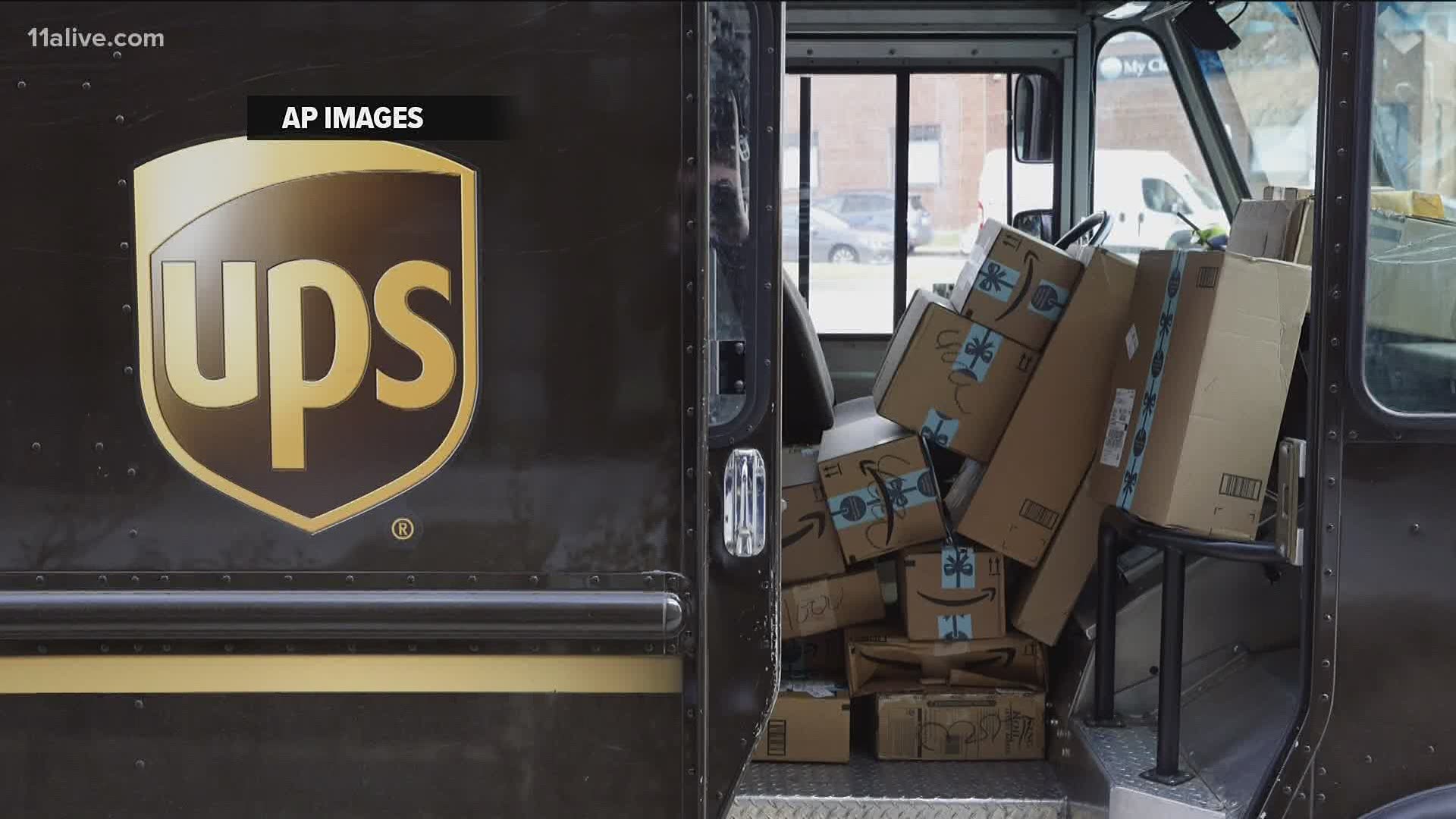ATLANTA — Even under normal circumstances, summer can be a difficult time for UPS drivers - especially in a state like Georgia. These are most certainly not normal times, and an Atlanta area driver says under the additional burdens of the pandemic, the job is becoming unbearable.
The driver, who wished to remain anonymous out of fear of retaliation, told 11Alive she normally loves her work.
But now, she says, it has "become a very exhausting job mentally and physically - very hard days, very long days actually now. It's kind of just taking over our bodies."
She described a number of ways her job has changed since the start of the pandemic - for one, her workload has tripled, she said, from somewhere in the range of 100 packages to deliver every day to something like 300. That means she's working longer days - from getting off at 7:30 p.m. to closer to 11 or 11:30 at night.
And now, it's hot.
UPS trucks don't have A/C, which is not a new issue for drivers. NBC News reported last year that at least 107 UPS workers in 23 states had been hospitalized for heat-related incidents since 2015. A petition has circulated online to get drivers air conditioning for a couple of years, and has reached more than 1 million signatures.
The cargo area of a truck can reportedly reach 140 degrees or higher, with some drivers telling NBC last summer they'd recorded temperatures as high as 152 degrees.
The driver who spoke to 11Alive said that's one of the biggest issues now - with shipping up during the pandemic and more packages stuffed into trucks, it takes more time in the sweltering back of the truck trying to find them.
On top of that, most of the restaurants where they could once have a bite and cool off during a break are now closed, largely leaving them to eat inside of their hot trucks.
"It's extremely exhausting just working in our trucks all day long now," she said. "We don’t have A/C to even cool us off ... most of the time we’re sitting in our trucks in the heat eating, trying to recoup, but we cant recoup fully because we're sweating, we're hot, we're not relaxed."


In a statement (which you can read in full here) Dan McMackin in the Atlanta-based company's PR department said there were practical difficulties with having A/C in trucks - drivers spend a substantial amount of their time outside the car, the doors stay open during stops and drivers don't spend a long time in the truck between stops.
All of which renders air conditioning ineffective, he said.
"UPS believes that preparation - rest, hydration and maintaining good health practices are key to working outdoors," the statement said in part. "Working outdoors has been part of UPS delivery jobs since the company was established in 1907. We highly value all of our employees, including our thousands of delivery drivers, and their health, safety and wellness are a priority."
He said employees who feel ill are encouraged to stop, notify delivery center management and, if they need assistance, local UPS personnel will come and help them or arrange medical assistance.
There's also a "Cool Solutions" program that "focuses on hydration, along with nutrition and proper sleep before working in hotter temperatures," and morning meetings with drivers where "we remind them of local forecast temperatures and encourage them to be aware of their own health condition."
But the driver who spoke with 11Alive said in practice, those meetings haven't been happening, and delivery center management has completely cut off communications since the start of the pandemic.
"All communication from management has completely stopped. We're not in the loop about what’s going on or how they're running our routes, they just completely stopped communication with us," she claimed. "There's times where we're working 14-hour days and if we decide to call 'em out, they're intimidating us and threatening our jobs. We're tired, we're exhausted, we get out here and our eyes are heavy from working 14-hour days every day. This has just become an inhumane working condition."


The drivers are unionized with Teamsters Local 728 whom she said they've brought complaints to, but she feels they are "not working for us."
She said they haven't brought any complaint to management, fearing retaliation.
"They're just throwing us out there, and get on your route and deal with it," she said. "And deliver all 355 packages before you return."
McMackin with UPS PR said drivers are limited by federal Department of Transportation from working more than 60 hours in a week, which in a five-day week could still mean up to 12-hour days. He said "our goal is to keep all drivers under a nine and a half-hour day."
"All UPS drivers earn time and a half for hours over 8 per day, and they are the highest-paid in the industry, making nearly $60 an hour on overtime," he said. "They also receive up to seven weeks of vacation annually and have robust benefits including full health care and pension."
He added that "the best advice for any essential worker right now is to prepare for the work at hand – eat a balanced diet, hydrate before a heat event, get plenty of sleep, and know your own body. The way you prepare yourself for work impacts the way your body responds to changes in temperature and longer hours."
The driver said that those were things everyone was already doing, and that it worked fine when there were fewer packages to deliver, and therefore shorter days.
Now, though, she said it's "non-stop."
"Just pushing ourselves every day, and we're pushing ourselves into exhaustion," she said.
MORE HEADLINES

